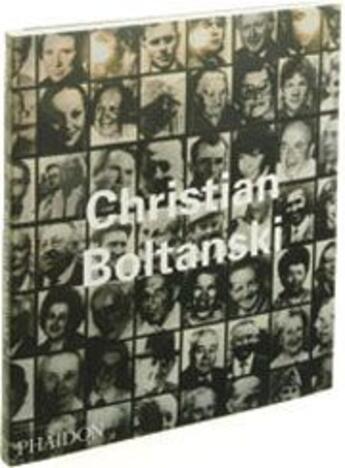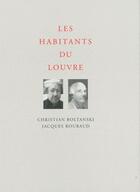-
Date de parution : 27/07/1999
-
Editeur :
Phaidon Press
-
EAN : 9780714836584
-
Série :
(-)
-
Support :
Papier
Résumé:
On of France's most important contemporary artists, Christian Boltanski came to prominence with major exhibitions at such important international venues at the Centre Pompidou, Paris (1984) and the Whitechapel Art Gallery, London, (1990). For his magical installations, Boltanski collects old... Voir plus
On of France's most important contemporary artists, Christian Boltanski came to prominence with major exhibitions at such important international venues at the Centre Pompidou, Paris (1984) and the Whitechapel Art Gallery, London, (1990). For his magical installations, Boltanski collects old photos, clothing and personal objects, which are presented as archival artefacts tracing individual lives. His own autobiogaphy is itself presented as fiction, particularly in his early 'mischevious' performative work, which invents a self-identity using found photos. Boltanski often uses everyday documents - passport photographs, school portraits and family albums - to memorialize ordinary people: the unknown children killed in the Holocaust, the citizens of a Swiss town or the employees of a Halifax carpet factory. The spaces he creates, often filled with flickering lights and shadows, lie somewhere between little theatres and churches, generating a sense of hushed wonder and a poignant evocation of loss. Boltanski's work has been presented in museums and public sites all over the world, including the Lyric Theatre, London, where the artist devised the stage sets and lighting for Schubert's Winter Reise in 1996.
Paris-based art historian Didier Semin follows Boltanski's work from the fictional biographies through to recent installations in the context of cultural and art historical developments in post-war France. Boltanski discusses his work and the role of the artist with art historian Tamar Garb, author of Sisters of the Brush (1994) and co-editor of The Jew in the Text (1995). Donald Kuspit, contributing editor to Artforum, focuses on Monument: The Children of Dijon, a work that consists of dozens of eerily lit, anonymous, black and white photographs of children long since lost to adulthood. Boltanski has chosen texts by master postmodern novelist Georges Perec, written in an inventory-like style that mirrors that of the artist. The book also features a selection of Boltanski's own writings, a beguiling and provocative blend of truth and fiction.
Donner votre avis









